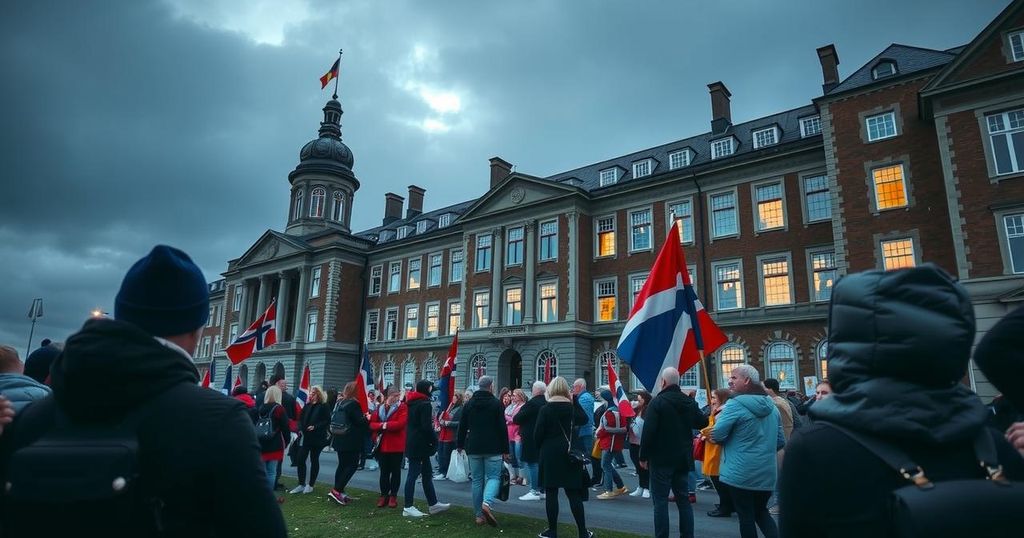Iceland Holds Parliamentary Election Following Government Coalition Collapse

Icelandis set to elect a new parliament due to the collapse of Prime Minister Bjarni Benediktsson’s coalition government. The election reflects rising public discontent over economic issues, immigration, and volcanic eruptions that have displaced residents. Ten parties are contesting for 63 parliamentary seats amidst heavy snowfall that may affect voter turnout. The ongoing socio-economic issues are likely to influence the election outcome significantly.
Iceland is conducting a parliamentary election following the collapse of Prime Minister Bjarni Benediktsson’s coalition government. Disagreements among coalition partners over the economy, immigration, and responses to volcanic eruptions led to this early election, marking the sixth such event since the 2008 financial crisis. Heavy snowfall threatens voter turnout as ten parties compete for 63 seats in the Althingi, the national legislature, with polls indicating potential political upheaval ahead. High inflation rates and housing crises, exacerbated by the pandemic and geopolitical issues, are pressing concerns for the electorate.
The current political turmoil in Iceland is rooted in a fragile coalition government that failed to address economic and social challenges effectively. The 2008 financial crisis significantly altered the political landscape, leading to a rise in new political parties amid a backdrop of public distrust. Recently, the nation has faced heightened immigration pressures, a surge in asylum-seekers, and the repercussions of volcanic activity, all contributing to an unstable economic environment characterized by high inflation and social discontent. As such, this election represents both a response to these issues and an opportunity for change.
This parliamentary election represents a pivotal moment for Iceland, not only as it grapples with its political identity in the wake of economic challenges but also as it confronts issues surrounding immigration and natural disasters. The electoral outcome may herald a new era in Icelandic politics as voters seek representation that addresses their pressing concerns. The high voter turnout in previous elections highlights the engaged electorate’s desire for transformative leadership.
Original Source: www.aljazeera.com








